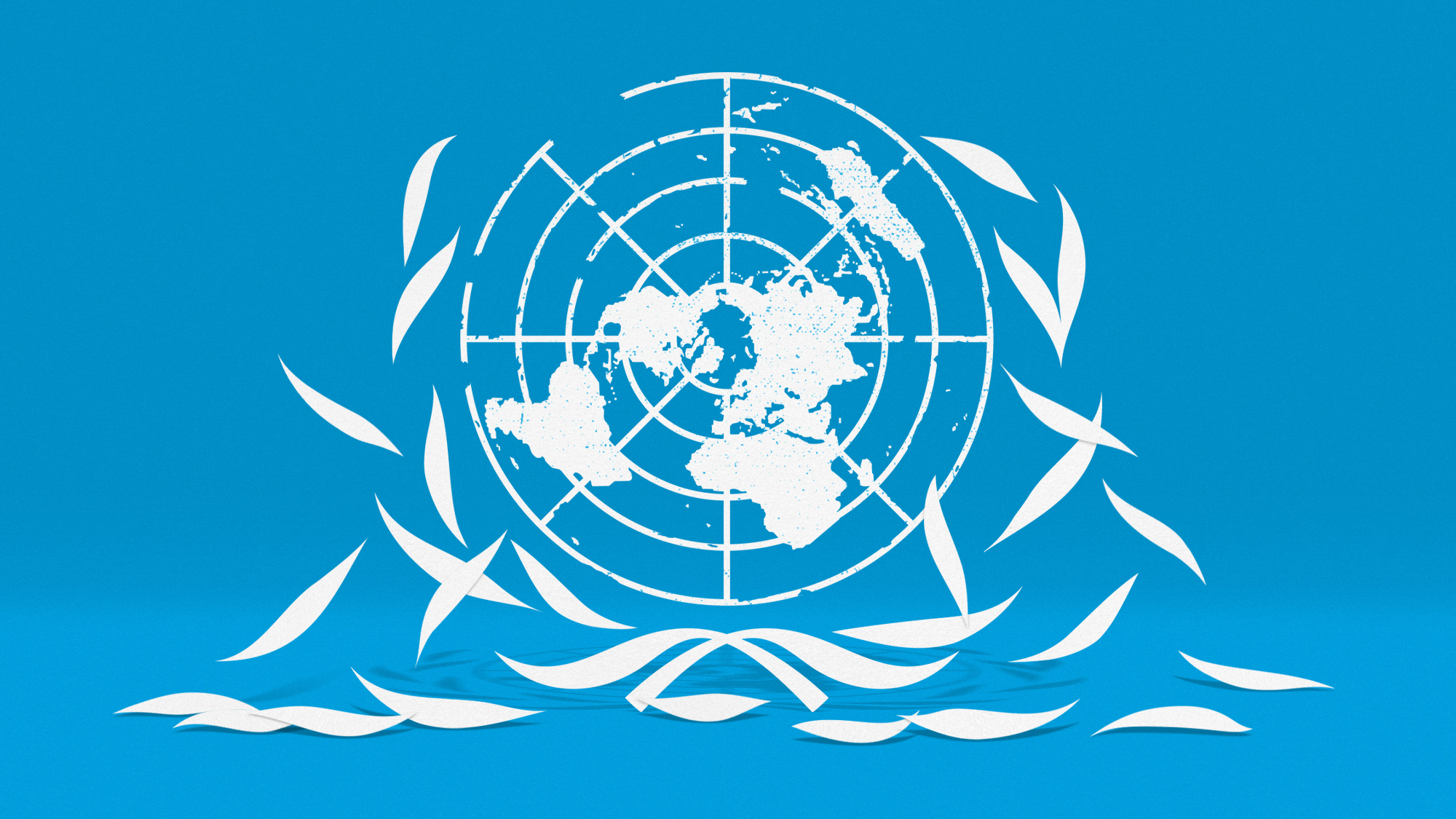Disunited nations: has the UN lost its relevance?
Missing figures at UN General Assembly lead to broad questions about the organisation's credibility

A free daily email with the biggest news stories of the day – and the best features from TheWeek.com
You are now subscribed
Your newsletter sign-up was successful
The United Nations 2023 General Assembly got under way yesterday without a number of key attendees, leading to questions over whether the intergovernmental organisation may be "losing credibility".
US President Joe Biden delivered a "forceful" address, said CNN, offering his support for Ukraine and stressing the importance of global unity, but notably absent from the room during his speech were leaders of any of the other P5 nations: Britain, Russia, China and France.
Their non-attendance "may be a reflection of what they see as the value of this organisation," said Matthew Kroenig, senior director of the Atlantic Council's Scowcroft Center for Strategy and Security. "It's the place where leaders come and give public speeches but that really nothing meaningful gets done."
The Week
Escape your echo chamber. Get the facts behind the news, plus analysis from multiple perspectives.

Sign up for The Week's Free Newsletters
From our morning news briefing to a weekly Good News Newsletter, get the best of The Week delivered directly to your inbox.
From our morning news briefing to a weekly Good News Newsletter, get the best of The Week delivered directly to your inbox.
What did the papers say?
Since the UN was founded in 1945, the General Assembly has long been "its high point when world leaders met to argue over the pressing causes of the day," said the Financial Times (FT). "No longer."
Today, "in a reflection of the impasse on the Security Council, caused by the tensions between Western powers and Beijing and Moscow", many leaders are staying away, the paper added.
The UN "has ended up what teenage gamers call a non-playing character (NPC) in international politics", said Nitin Pai in the Indian financial newspaper Mint.
In the absence of any true leadership from the organisation, wars continue to rage in Syria, Myanmar, Yemen and elsewhere with little intervention, due largely to the fact that most of them "are of peripheral interest to the major powers, which have bigger fish to fry", Pai wrote. The problem is that "without external dousing, the fire ends only when it burns itself out".
A free daily email with the biggest news stories of the day – and the best features from TheWeek.com
The UN is "losing credibility", according to Ireland's President Michael D. Higgins. "It is unable to stop war, it is unable to end famine, it is unable to stop conflicts, it is unable to manage migration."
However, Higgins said the organisation could be "saved" by the influence of countries such as Ireland which "have no other aim or ambition other than a safe, sustainable, peaceful world".
Highlighting the broad concerns about the organisation's decline, the French Institute of International Relations think-tank hosted a debate earlier this year titled "Is the UN Security Council still relevant?".
The event pointed to twin failures by the UN Security Council: the war in Ukraine, which "exemplified the limitations of the UN Security Council", and North Korea's nuclear and ballistic missiles program, which, the think-tank said, has been "a destabilising factor in Asia".
What next?
Despite the broad concern, US officials say they regard the UN as worthy of support and still see value in what it is capable of achieving in areas such as food security and climate change.
"There's a demand signal from countries around the world that we, the United States, lead responsibly and that means…trying to make the UN and other international institutions more effective," US Secretary of State Antony Blinken said in an interview on the Pod Save the World podcast.
He added: "So we have an interest in making sure that the UN can operate effectively through its programs; for example, on food security, on maternal health, on climate, you name it."
For Jeremy Greenstock, who was the UK's UN ambassador from 1998 to 2003, there is the chance the UN might fade into obscurity, as other international organisations have done in the past, but for now it remains critically important, given it is presently the only place where global rules are instituted. "It is enfeebled but it does an enormous amount of good work in Africa, and in setting up special representatives and trying to bring closure to disputes," he told the FT.
Somewhere, the "spirit of collectivity has to be regenerated", Greenstock said. "Maybe it could be at the G20 – with the UN as the place to do the work."
Arion McNicoll is a freelance writer at The Week Digital and was previously the UK website’s editor. He has also held senior editorial roles at CNN, The Times and The Sunday Times. Along with his writing work, he co-hosts “Today in History with The Retrospectors”, Rethink Audio’s flagship daily podcast, and is a regular panellist (and occasional stand-in host) on “The Week Unwrapped”. He is also a judge for The Publisher Podcast Awards.